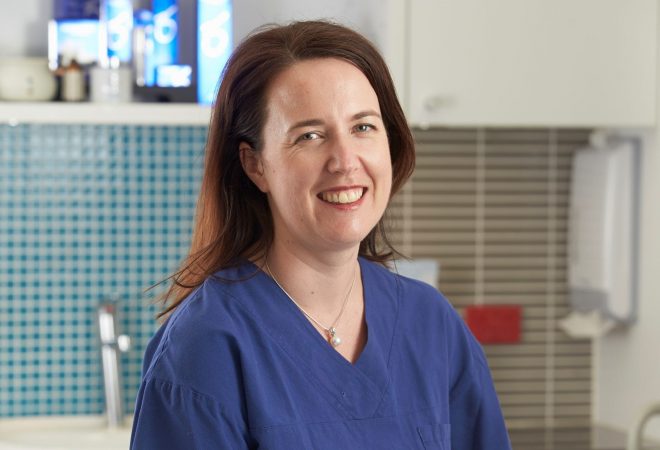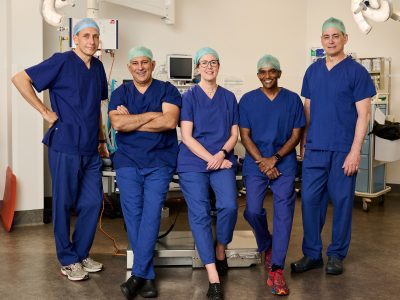by Dr Brigid Corrigan
So you’re thinking of getting breast implants?
There is certainly a wealth of information out there on this topic, but who can you really trust and what is it really going to be like for you?
We’ve put together some of the most common questions our patients ask us when they are thinking about breast augmentation surgery. Remember, this is a general guide only. To find out what is best for you as an individual, you should come in for a Specialist Plastic Surgeon consultation.
These websites also provide helpful guides to assist:
Choice Report – 13 things you need to know about breast implants
ABC Triple J – What you need to know about breast implants
At Assure, we offer a package for breast augmentation patients, for one all-inclusive price of $15,990 – covering surgery performed safely under general anaesthetic in a fully-accredited Perth hospital. You can read more about our All-Inclusive Breast Augmentation package here.
What’s involved?
Breast augmentation is usually done either as a day case or with one night in hospital. The operation is performed under general anaesthetic. Usually an incision is made in the fold under the breast and a pocket for the implant is created. It is important that this is done accurately to ensure that both sides are the same and that the pocket is the right size for the implant. Incisions can also be placed around the areola or in the armpit.
What sort of implants?
Usually silicone implants are used. Saline implants are available but are much less commonly used these days as they are more likely to produce a rippling or wrinkling appearance.
Silicone implants can be textured or smooth and either round or teardrop in shape. Your surgeon will discuss the best implant choice for you based on your desired result, preoperative breast shape and chest dimensions.
What size implant should I have?
As part of your initial consultation your surgeon will discuss your goals, examine you and take a number of measurements of your chest dimensions. For a natural look, the right size implant for you needs to be chosen to complement your chest dimensions. For example, a 350cc implant will look very different on someone who is 180cm tall with a broad chest, than on a petite 155cm-tall girl. This means requesting the same implant your girlfriend had is not necessarily the right choice for you.
What cup size will I be?
Contrary to popular belief there is no such thing as a ‘D’ cup implant. A lot depends on your chest dimensions, as well as how big your breasts are to begin with. Add to this, the big variation between different bra brands and it can be difficult to predict your final cup size. An experienced plastic surgeon however, can usually give you a good idea of the likely size you will be after your surgery and will take your desired size into consideration when recommending an implant for you.
How long do breast implants last?
There is no set lifespan of breast implants, but you may have to change or remove them at some stage during your lifetime. The risk of problems or rupture is very low, however follow-up after breast implant surgery is very important. If you notice any changes in the shape or feel of your implants, it is important to get this checked by your surgeon.
Behind or in front of the muscle?
This needs to be individualised and there are pros and cons to both techniques, which your plastic surgeon will discuss with you. If you are slim, you may have limited soft tissue in the upper part of your breast to cover an implant if placed in front of the muscle. Better coverage of the implant may be achieved by placing the implant under the pectoralis muscle. There is also evidence that the risk of capsular contracture (hardening of the implants) is lower when implants are placed under the muscle. Sometimes there are also good reasons to place the implant in front of the muscle. These include women who have good volume in the upper part of their breast to cover the implant and women who do a lot of weightlifting or body building. In these women, animation or distortion of the implant with pectoralis contraction may be a problem with a sub muscular implant.
Are there risks?
As with any surgical procedure complications can happen. The best way to minimise surgery risks is to ensure your surgery is performed by a fully qualified and experienced specialist plastic surgeon. It is also important your surgery is performed in an accredited hospital with a specialist anaesthetist and qualified nursing staff. Your surgeon will discuss these considerations with you further, so you are fully informed in your decision making.
What is the recovery time?
You will usually be discharged from hospital on the day of your operation or you may spend one night in hospital. For the first few days after your surgery you will usually have some discomfort and will be prescribed painkillers. You will have a post operative consultation with your surgeon 5-7 days after surgery to check you are healing well. Most women can return to their usual routine within 2-3 weeks, although you will not be able to do vigorous exercise or heavy lifting for six weeks. The time you require off work depends on the type of job you have. Usually between 1 and 3 weeks is required for a sedentary job such as office work. For a more physical job, you may need 4-6 weeks off work. Your surgeon will discuss this with you at your consultation.
Can I breastfeed afterwards?
Yes. There is no evidence that breast implants interfere with breastfeeding or pose any risk to your baby.
Do I need a lift as well?
This is a common question and depends on the amount of sagging or drooping of your breasts. As a general rule, young women with good skin elasticity and minimal drooping will not need a lift (mastopexy). In older women, where there is significant sagging of the breast and nipple after breastfeeding, a lift in combination with an implant may be the best option.
Local or overseas?
While the idea of a holiday in an exotic location whilst you recover from your surgery may sound great, the reality can be quite different. There are many risks and pitfalls that are not well known.
It is important to make sure your surgery is performed by a fully qualified specialist plastic surgeon in an accredited hospital. Whilst Australia has stringent standards this is not necessarily the case in other countries. It can also be hard to find the essential information you need to know before you book for surgery overseas.
Your preoperative and post-operative care are an extremely important part of the process. At Assure, your plastic surgeon will see you for a consultation to discuss your surgery in detail well ahead of the procedure. This gives you plenty of time to think about what’s right for you and to ask questions. Post-operatively you will be seen regularly by your surgeon for follow-up to monitor your progress. If you do have any problems, your surgeon will be available to look after you.
The decision to have cosmetic surgery is a major one and your choice of surgeon and clinic is of absolute importance. So before jumping on a plane, book a consultation to discuss your options.
Return to News & Surgeon Blog



